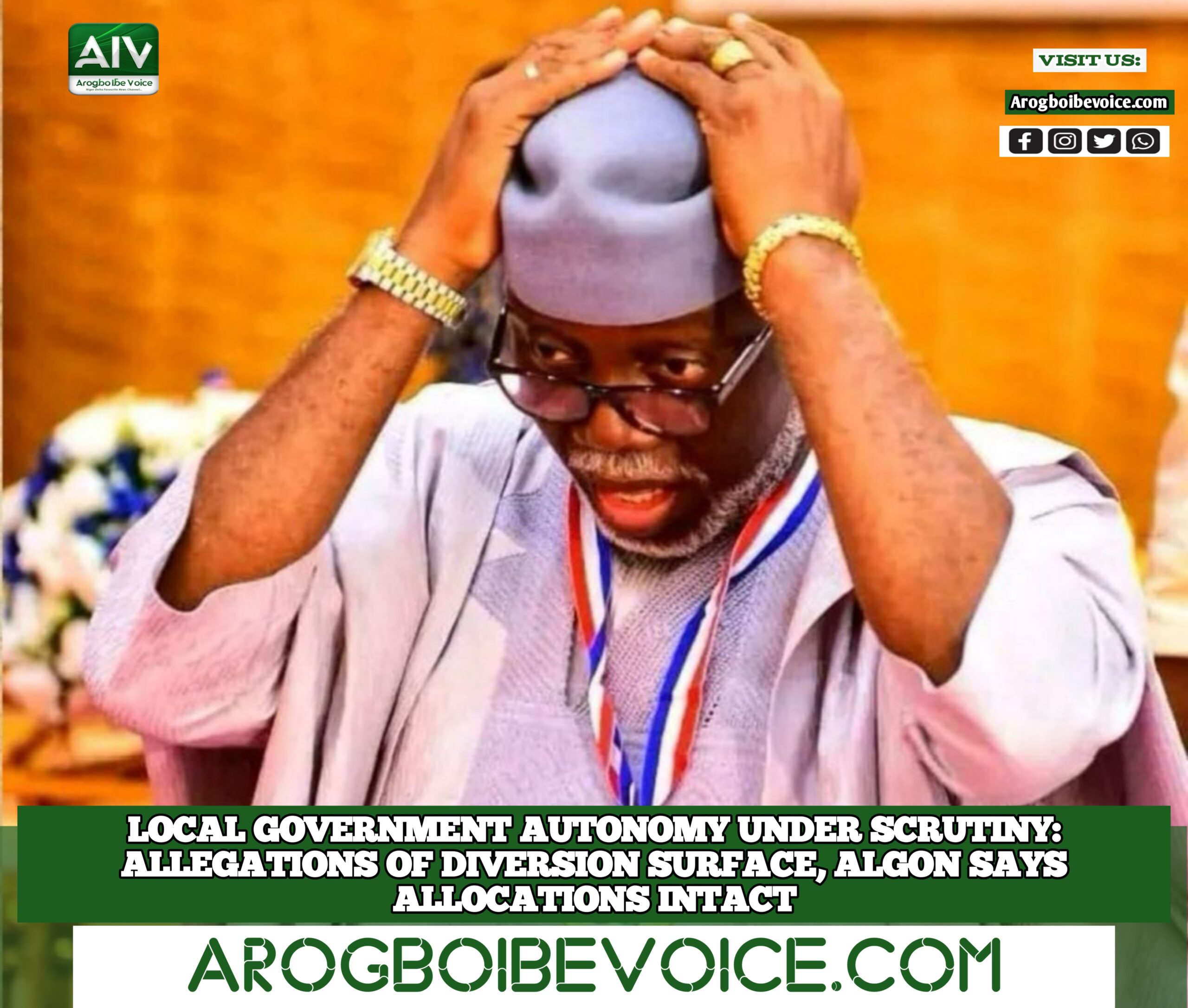Local Government Autonomy Under Scrutiny: Allegations of Diversion Surface, ALGON Says Allocations Intact
The controversy surrounding local government allocations in Ondo State has deepened, with the state chapter of the Association of Local Government of Nigeria (ALGON) strongly defending Governor Lucky Orimisan Aiyedatiwa against allegations of tampering with council funds.
This comes barely 24 hours after reports surfaced alleging that council chairmen were left with only ₦4 million monthly to run their affairs, despite billions of naira being disbursed from the Federation Account Allocation Committee (FAAC) to the state.
According to a report by Sahara Reporters on September 4, 2025, some local government chairmen claimed they were not granted direct access to their allocations. Instead, the funds were allegedly routed through the controversial state-local government joint account system, in contravention of the Supreme Court’s July 2024 ruling on local government financial autonomy.
One council chairman, speaking anonymously, alleged:
“For instance, in the last FAAC for June, some local governments received ₦644 million, ₦590 million, and ₦405 million. You can verify this on BudgIT. Yet, after deductions and directives, we are left with just ₦4 million to run our councils.”
The allegation fueled tension at the grassroots level, with civic groups like the Association for Good Governance Advocacy (AGGA) urging President Bola Tinubu to enforce the Supreme Court’s judgment to ensure local governments get direct allocations without state interference.
In defense, the Ondo State Commissioner for Local Government and Chieftaincy Affairs, Amidu Takuro, dismissed the allegations as “false and politically motivated,” insisting that all funds remained in council accounts and were available for verification.
On September 5, 2025, the Ondo State ALGON, led by its chairman and Akure South Council boss, Hon. Gbenga Fasua, publicly rejected the allegations, describing them as untrue and misleading.
Fasua stated emphatically that local government chairmen are fully in charge of their finances and that the ongoing grassroots projects across the 18 LGAs are proof of judicious use of the funds.
“It’s not true that the governor (Lucky Aiyedatiwa) is tampering or diverting LG funds from the federal allocations. How have we been able to embark on the level of development currently ongoing in our local governments?” he said.
Citing Akure South as an example, Fasua disclosed that within just five months, his administration had procured 10 operational vehicles, embarked on road construction, water supply schemes, drainage works, and even deployed tractors for flood control measures.
“Across the LGAs in the state, projects are visible and ongoing: roads are being constructed, water projects are spread across communities, and essential services are being delivered directly to the people. If the governor were dictating or controlling our finances, how would we have achieved these feats?” Fasua asked.
The dispute over local government funding follows the Supreme Court’s landmark July 11, 2024 judgment, which outlawed the practice of state governments withholding or managing council allocations. The apex court directed that all FAAC disbursements be paid directly into LGA accounts to guarantee full financial autonomy.
Despite this ruling, allegations of non-compliance have persisted in several states, Ondo inclusive, prompting civil society groups and activists to intensify calls for stricter federal enforcement.
While ALGON’s latest clarification appears to absolve Governor Aiyedatiwa of wrongdoing, the conflicting narratives between anonymous chairmen’s claims and ALGON’s official position highlight the deep distrust and opacity surrounding local government financing in Nigeria.
As the controversy lingers, stakeholders await whether the Federal Government, through the Attorney-General of the Federation, will intervene to ensure strict adherence to the Supreme Court’s decision.
All efforts to reach Governor Lucky Orimisan Aiyedatiwa directly for his personal comments were unsuccessful as of the time of filing this report.

